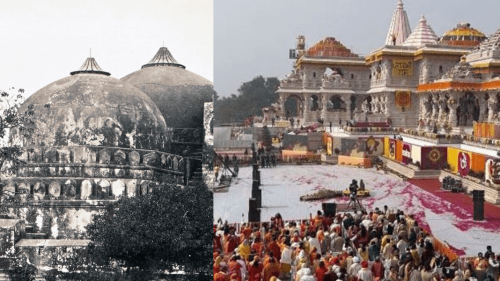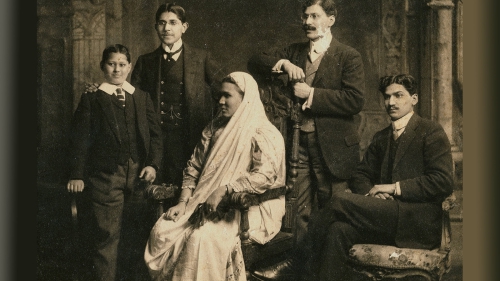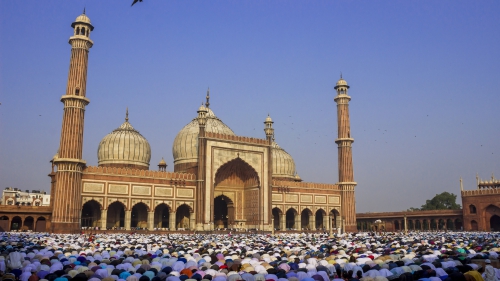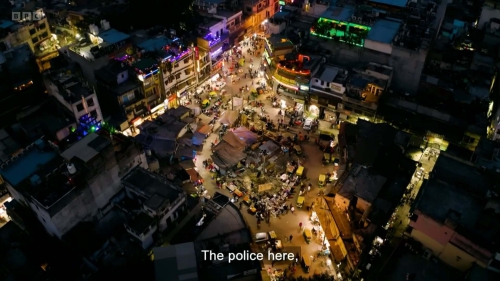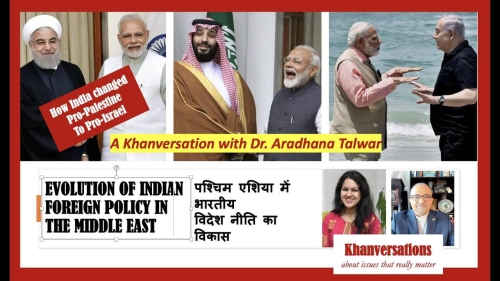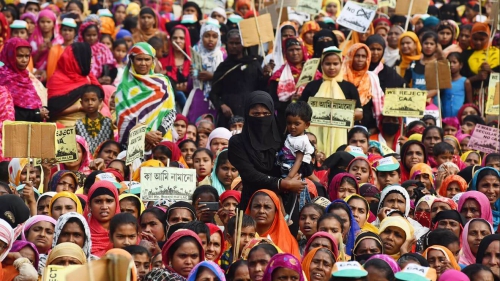J&K: A Catch-22 Situation
J&K: A Catch-22 Situation By MUHAMMAD FAHEEM
Jammu and Kashmir is only state where heavily-armed helicopters of the Indian Air Force were pressed into service to combat the decade-old militancy, where over 70,000 lives have been lost and all the 500 grave yards have been full, where 15,000 children were orphaned and 8,000 women were widowed, where not even a single 'militant' has been found convict since a decade, where all commercial activities have suffered greatly and still it bears the brunt of the Centre's step-motherly treatment with reference to budget allocation for welfare activities.
The problems of Muslims do not seem to be coming to an end in the near future. Curfews, searches, interrogations, killings of suspected militants without prosecution, and accidental or intentional killings of innocent civilians are common features. The Farooq Abdullah government came in for a lot of flak when massive demonstrations forced closure of South Kashmir for eight days. Finally, it had to announce a commission of inquiry headed by Justice (Retd.) S.R. Pandian to look into the trail of violence.
Release of APHC Leaders
The situation arising out of the massacre of 37 Sikhs, the gunning down of the alleged killers whom people claimed were innocent civilians and the killing of seven in police firing in the aftermath protest march seems to have forced the Central Government to take a soft corner and release three leaders of the All Party Hurriyat Conference (APHC) - Syed Ali Shah Geelani, Maulvi Abbas Ansari and Abdul Ghani Bhatt - who were languishing in jail without facing any charge. They were held six months back along with 12 senior Kashmiri political figures under the Jammu and Kashmir Public Safety Act, which allows for lengthy periods of preventive detention. Although the Farooq Abdullah Government was in no mood to release them.
It seems bizarre on the part of the Central Government that on the one hand, it wants to enter into a dialogue with Kashmiri leaders and on the other, it is still detaining more APHC leaders without charge. Home Minister L.K. Advani asserts that the Centre is ready to talk within the "constitutional framework". The fact remains that the Constitution of India does not have much to do with Jammu and Kashmir. Noted constitutional expert Durga Das Basu writes, "...the State of Jammu and Kashmir was accorded a special status and was allowed to make its own State Constitution. Even all the other provisions of the Constitution of India did not directly apply to Jammu and Kashmir but depended upon an Order made by the President in consultation with the Government of that State, - for which provision had to be made in Art. 370." (Introduction To The Constitution of India, page 32) In addition, the Central Government's stand is contradictory. On the one hand, it rejects mediation in international foras on the ground that Jammu and Kashmir is a bilateral issue. On the other hand, it rejects Pakistan's offer for talk on the ground that Kashmir is an integral part of India.
Lack of Conviction
Maqbool Butt, alleged ideologue of Jammu and Kashmir of Liberation Front (JKLF) was the last Kashmiri to be convicted in 1985. He was sent to gallows on February 11 the same year. Since then, not even a single accused has been found guilty of having a hand in militancy. Lack of substantial evidence plays a key role in this regard.
A total of 34,418 people have been arrested during the last decade. In most of the cases, trials have either not started or have just begun. In jails, they complain of ill-treatment and prolonged detention. The relatives of these detainees also do not call for their release as they fear that they may be killed in encounters by the security forces.
According to a report published in an English magazine The Week, 34,418 people were arrested during 10 years; 19,193 were released after preliminary interrogation; 15,225 were arrested under pernicious TADA; 14,555 were released by screening committees; and 675 are still under custody.
Non-payment of Rents
A total of 621 Kashmiri people, whose properties the Army and the Rashtriya Rifles (RR) have taken over for setting up posts for counter-insurgency operations for more than 10 years without paying rents, have approached the Delhi High Court to seek compensation. The properties include land, buildings, shops and their premises - orchards and gardens. Some of the owners have brought the matter to the notice of President and Prime Minister.
The State Government is not ready to pay the rents to the owners and has thrown the ball into the court of the Defence Ministry. "There is no possibility of the State Government agreeing to pay rents for accommodation hired by the Army and Rashtriya Rifles. This will have to be paid by the Defence Ministry," said Chief Minister Abdullah in a letter to Defence Minister George Fernandes. The people are caught in the middle of a quarrel between the State Government and Defence Ministry over who is bound to pay the rents.
Budget Ignores J&K
The Union Budget which was presented in Parliament on February 29 has turned a blind eye to the predicament of Jammu and Kashmir in matters of financial disbursement. Abdul Rashid Shaheen, MP, National Conference, has alleged that the state was being neglected by the Centre even as debt relief and other forms of financial sops were provided to Punjab and North-eastern states.
According to him, the Centre had ignored the state by not providing it with 10 per cent of the total budgetary allocation as had been done in respect of the North-eastern states. "In the expenditure budget, every department of the Union Government has spelled out projects and allocation of funds to be spent in the North-eastern states. The Centre has made it necessary to make sub-plans in all Central ministries and at least 10 per cent of the total budgetary allocation to be spent in the North-eastern states. We could have been easily treated at par with North-east for such spending from the Union Government departments," he said, besides criticising the Centre for not announcing any scheme to boost industrial activities in the State.
Kashmir has often been described as Paradise on earth. Its prosperity and civilisation once excelled other parts of the country. Its strong economy combined farm produce - saffron, apples, fish, meat, rice, etc. Its carpets and shawls attracted a lot from the nook and corner of the world. Now it is tragic that everything is at sixes and sevens.






